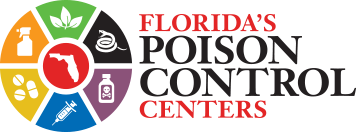Medication
In Florida, many calls to poison control now involve medication mistakes. Some of these calls are about children who have gotten into a parent’s or grandparent’s medication, but many are also in regard to an adult who has double-dosed, or taken the wrong medicine entirely. In some cases, calls are about mistakes made with an over-the-counter product or herbal supplement. Poison control centers are happy to take calls or questions about any type of medication concern, such as accidental double doses, interactions with other drugs or common side effects.
A large percentage of people who die from poisoning have combined multiple drugs with alcohol. For more details about poisoning in Florida, see the Florida Department of Health report from the Injury Prevention Program or the Florida Department of Law Enforcement’s “Medical Examiners’ Drugs in Deceased Persons” Annual Reports.
Members of the public may click here to find a medication drop box near you.
Prescription Pills
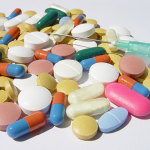 Types of Medication Associated With Overdose
Types of Medication Associated With Overdose
Most serious or fatal medication poisonings occur with those meant to control pain, anxiety, or other serious health conditions. Many of these products cause “central nervous system depression”, i.e. they slow down the breathing and heartbeat. Too much of these medications can easily lead to death, especially when these medications are combined with each other, or with alcohol. Many of the most deadly medicines also have the potential to be addictive – which can make staying safe a challenge.
How Many People Die From Prescription Medication Abuse?
Seven Floridians die every day from prescription medication abuse — that’s five times as many deaths as from all illegal drugs. Since 2008, more Floridians have died every year from medication poisoning than from car crashes.
Take Steps to Prevent Medication Misuse
- Take medications with care: follow directions, and have your pharmacist check for interactions between prescriptions, herbal, and over-the-counter medicines.
- Put medicines in a place where children and visitors can’t get to them.
- Contact your local law enforcement agency to find out about local drug take-back events and centers.
- Don’t share medicines with others. It could cause illness and is against the law.
- If no take back program is available in your area, dispose of unneeded medications by following these steps:
- Remove labels from pill containers.
- Mix pills with liquid to dissolve them.
- Stir coffee grounds, dirt or kitty litter into the liquid.
- Seal the container with tape and hide it in an outdoor garbage can.
Warning Signs That Someone is Abusing Medications
- Unexplained need for money, and borrowing or stealing to get it
- Drop in attendance and performance at work
- Engaging in secretive or suspicious behaviors
- Appears fearful, anxious or paranoid with no reason
- Lack of motivation; appears lethargic or “spaced out”
- Periods of unusual activity or extreme sleepiness
- Sudden mood swings, irritability or angry outbursts
- Unexplained change in personality or attitude
- Sudden change in friends, favorite hangouts and hobbies
- Frequently getting into trouble (fights, crashes, illegal activities)
Opioids and Painkillers
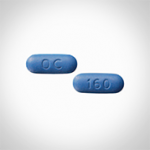 What Are Opioids?
What Are Opioids?
Opioids are prescription narcotics used to relieve severe pain. Some provide pain relief for up to 12 hours. Pills such as Oxycontin®, oxycodone, oxymorphone, buprenorphine, hydrocodone, morphine, codeine, Fentanyl®, Tramadol® and Dilaudid® are narcotic pain relievers.
How Do Opioids Affect the Body?
When a person who does not have chronic pain takes opioid pain pills, the results are nausea, extreme drowsiness, constipation, dizziness, sweating and weakness. When a strong dose is taken, a person can experience cold and clammy skin, a slow heartbeat, small pupils, muscle weakness, lethargy, coma and shallow breathing. Long-term use is addictive, meaning that stronger doses may be needed for pain relief and a person may experience withdrawal if they stop the drug use suddenly.
How Are Opioids Abused?
People seeking an alternative to heroin often try opioids. They may crush the tablet to snort or inject it. Classified as a Schedule II drug, prescriptions for opioids are often obtained fraudulently, then sold for up to $180 per tablet. In many robberies of pharmacies and residences, only the opioids are stolen.
How Widespread is Opioid Abuse?
Opioid pain relievers are responsible for three-fourths of all prescription drug overdose deaths and caused more than 16,600 deaths in the United States in 2010 (CDC National Vital Statistics). One hundred Americans die every day from medication overdoses. But for every death, there are 32 emergency department visits. In 2008, Florida was in the top 10 states for overdoses. For more information, visit U.S. Drug Enforcement Administration or CDC.
Vital Signs: Overdoses of Prescription Opioid Pain Relievers—United States, 1999-2008. MMWR 2011; 60: 1-6.
How is an Opioid Overdose Treated in the Hospital?
Any person that cannot be awakened after ingesting opioids should be taken to the hospital. Do not let the person “sleep it off.” An opioid overdose is treated like any other narcotic overdose, with a reversing agent (naloxone) and by supporting body functions possibly with the use of a ventilator (breathing machine).
Benzodiazepines (Anti-Anxiety Drugs)
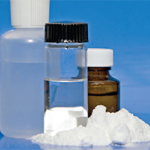 What Are Benzodiazepines?
What Are Benzodiazepines?
Benzodiazepines are prescription anti-anxiety medications which include Xanax®, Ativan®, Klonipin®, Dalmane®, Halcion® and Valium®.
How Do Benzodiazepines Affect the Body?
Benzodiazepines act like a depressant, causing relaxation and drowsiness. They are particularly dangerous when combined with alcohol and other depressants because the combination results in extreme sedation, coma, or difficulty breathing.
How is a Benzodiazepine Overdose Treated in the Hospital?
Since the main danger from this overdose is difficulty staying awake enough to breathe, the patient may be placed on a breathing machine. Sometimes an antidote can be given to reverse the effects of the drug, but in many cases this can cause other problems.
For more information, visit U.S. Drug Enforcement Administration.
Dextromethorphan (a.k.a. Robo-tripping, Purple Drank, Dirty Sprite, DXM, Triple C’s)
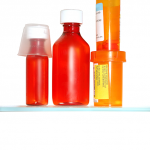 Who Abuses Dextromethorphan and Why?
Who Abuses Dextromethorphan and Why?
This substance abuse trend involves taking over-the-counter cold remedies containing dextromethorphan or ordering the ingredient off the Internet. These products are abused by teens and pre-teens because they can be purchased over-the-counter in drugstores. Hip-hop and rap music stars have popularized DXM and some rappers have died due to DXM overdose. Users hope to feel excitement and euphoria, but often encounter drowsiness, dizziness, vomiting, hallucinations, fast heartbeat, high blood pressure, convulsions, coma or death.
What Are Some Signs of Dextromethoprhan Abuse?
The person may have signs similar to alcohol intoxication: difficulty walking, vomiting, confusion and drowsiness. They may be out of touch with reality, exhibit unnatural postures, and feel extremely frightened. Depending on which added ingredients are in the product, the abuser may also have enlarged pupils and feel hot, dry and flushed.
What Are the Dangers of Dextromethorphan?
Extra ingredients such as acetaminophen in cough syrups add potential damage, including liver failure. DXM can cause heart or nervous system damage. Long-term abuse can cause mental illness (psychosis), erectile dysfunction, frequent urination, chronic high blood pressure, muscle contortions and rapid back-and-forth eye movements (nystagmus).
How is a Dextromethorphan Overdose Treated in the Hospital?
Treatment may include many medications to calm agitation, lower the blood pressure, slow the heartbeat, counteract coma, reduce muscle contortions, and control convulsions; IV fluids; cooling measures; or breathing machines. Call Florida Poison Information Center at 1-800-222-1222 for emergency advice or questions.
